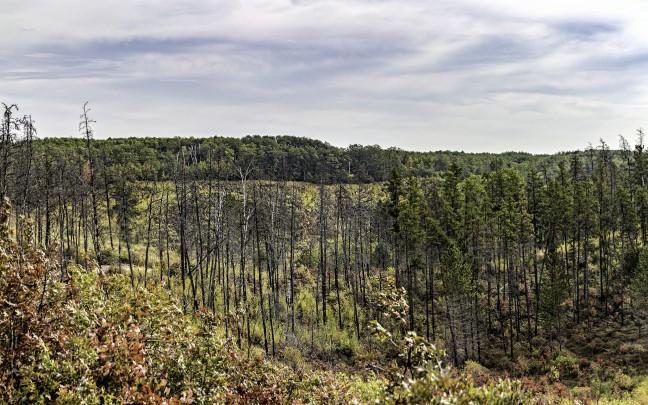Under conditions stirred up by climate change, it’s unclear how once resilient forests will fare.
As indications of climate change become more apparent, a study led by a University of Wisconsin zoology professor looks to identify at what point rising temperatures and higher frequencies of natural disturbances like wildfires could potentially leave a forest unrecoverable.
UW zoologist Monica Turner, who has been studying Yellowstone National Park for more than 25 years, has observed the full recovery of more than a million acres of Yellowstone’s forests after they were devastated by fires in 1988.
“One of the [main messages] out of 25 years of studying the 1988 fires and the recovery of the forests to those fires was that they were incredibly resilient,” Turner said. “Without any management … they came back just fine.”
But Turner said global warming is causing more frequent natural disturbances, such as floods, hurricanes and wildfires.
Forests are hardy, but more frequent fires caused by global warming are testing their resilience.
In Yellowstone, almost 30 years later, severe forest fires have again returned. While the forests recovered after 1988, Turner said it’s difficult to know what the long term impact of another serious burning within such a short timeframe will ultimately be.
Paris to Madison: UW researchers at international climate summit explain local implications
The paper, published by Turner and Jill Johnstone, a professor of biology at the University of Saskatchewan, intended to address what the implications of increasing rates of natural disturbances might mean for our forests.
“Many disturbances, especially things like fire, have a strong climate driver because they occur when you have drought conditions, warm temperatures and high winds. That can change the frequency and the size and the severity of fires,” Turner said. “It also changes the environment in which the plants are recovering.”
In the paper, Turner said a total of 12 contributors worked to highlight specific kinds of combinations of natural disturbances that could lead to a loss of resilience.
One scenario where a forest may fail to be resilient, Turner offered, is if two wildfires occur in rapid enough succession where the second generation of trees may not have enough time to mature and produce seeds.
If forests can’t recover from natural disturbances, Turner said people should expect to see big changes.
“It will change the habitat for wildlife, the connectivity of that habitat for different species, … the amount of carbon that our ecosystem can store, it will change obviously the aesthetics of the landscape as well,” Turner said. “If there is a forest that you depend on for timber resources, it’ll change that.”

















